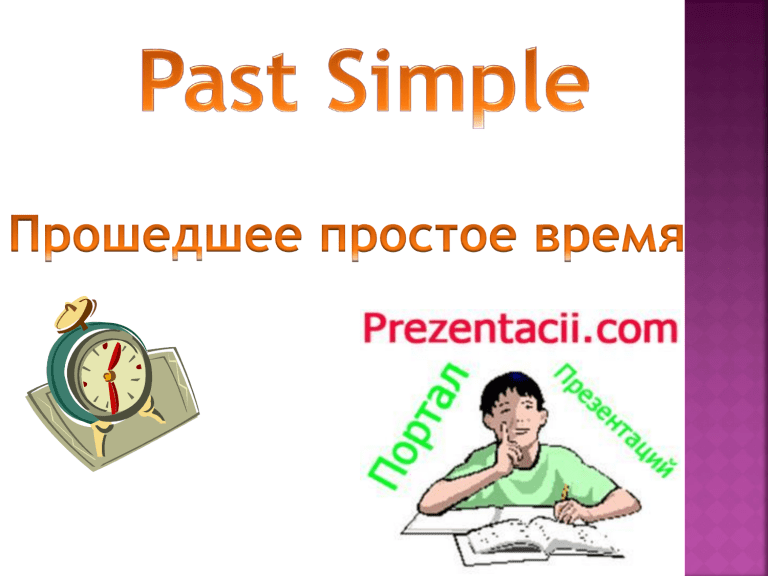
Past Simple
Present participle: She is opening. Past tense: I opened. Past particle: I have opened. Verb forms of the word "open" Example sentences in all verb forms: Indefinite present tense I open. Present continuous tense She/he/it is opening. Present perfect continuous tense She/he/it has/had opened. Present perfect tense She/he/it has/had been opening.

Open Past Simple, Past Participle, V1 V2 V3 Form of Open English Vocabs
Verb; Open Meaning; outdoor, clear, obvious, light, explicit V1, V2, V3, V4, V5 Form of Open Synonym for Open outdoor clear obvious light explicit free independent loose liberal leisure wide broad spacious large extensive honest fair frank righteous straight roomy commodious capacious Opposite of Open Advertisements closed near tight

Thì quá khứ đơn (past simple) Lý thuyết và bài tập có đáp án Blog Hồng
Simple past english opened Past participle english opened More information Full conjugation of "to open" Translations for "to open" Full conjugation of "to open" Indicative Present I open you open he/she/it opens we open you open they open Present continuous
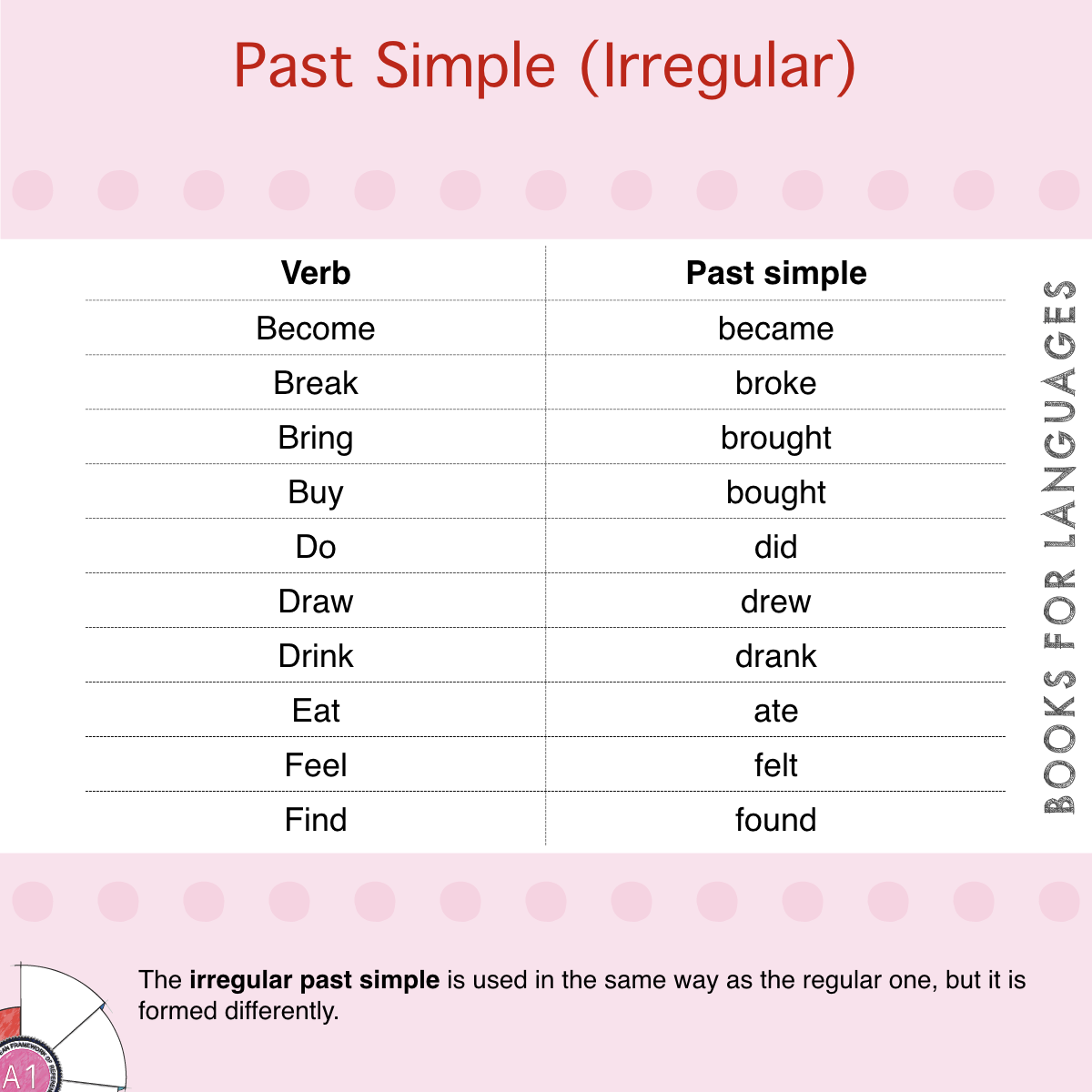
Past Simple Regular And Irregular Verbs Example BEST GAMES WALKTHROUGH
How to form the simple past For regular verbs, add -ed to the root form of the verb (or just -d if the root form ends in an e ): Play→Played Type→Typed Listen→Listened Push→Pushed Love→Loved For irregular verbs, things get more complicated. The simple past tense of some irregular verbs looks exactly like the root form: Put→Put Cut→Cut Set→Set

Our English classroom Past simple
Not beating around the bush, what is the past tense of open? It's "opened". Amazingly, this regular verb's simple past and past participle forms are lookalike. All in all, you can spell open past tense and past participle O-P-E-N-E-D. Meanwhile, O-P-E-N is how we spell the base form of it.
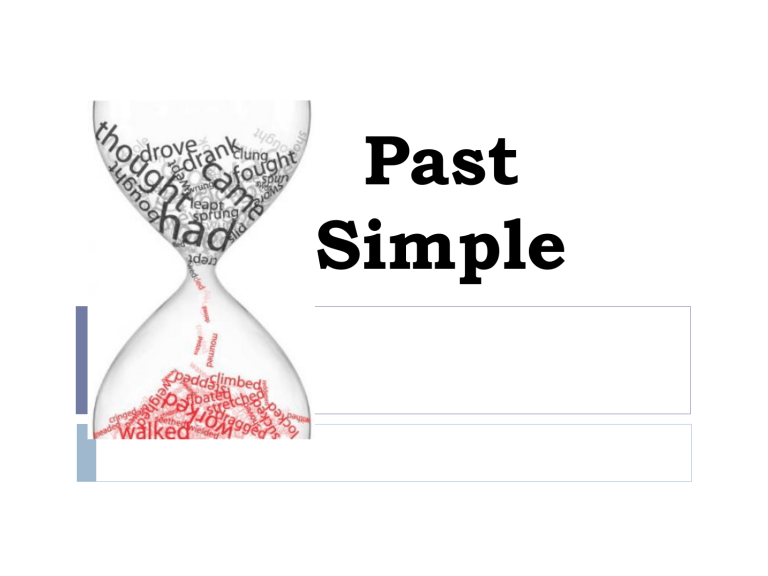
Past simple
open It is conjugated like: work infinitive: present participle: past participle: (to) open opening opened definition in Spanish in French in Italian Indicative Perfect tenses Continuous (progressive) and emphatic tenses Compound continuous (progressive) tenses Conditional Imperative Subjunctive
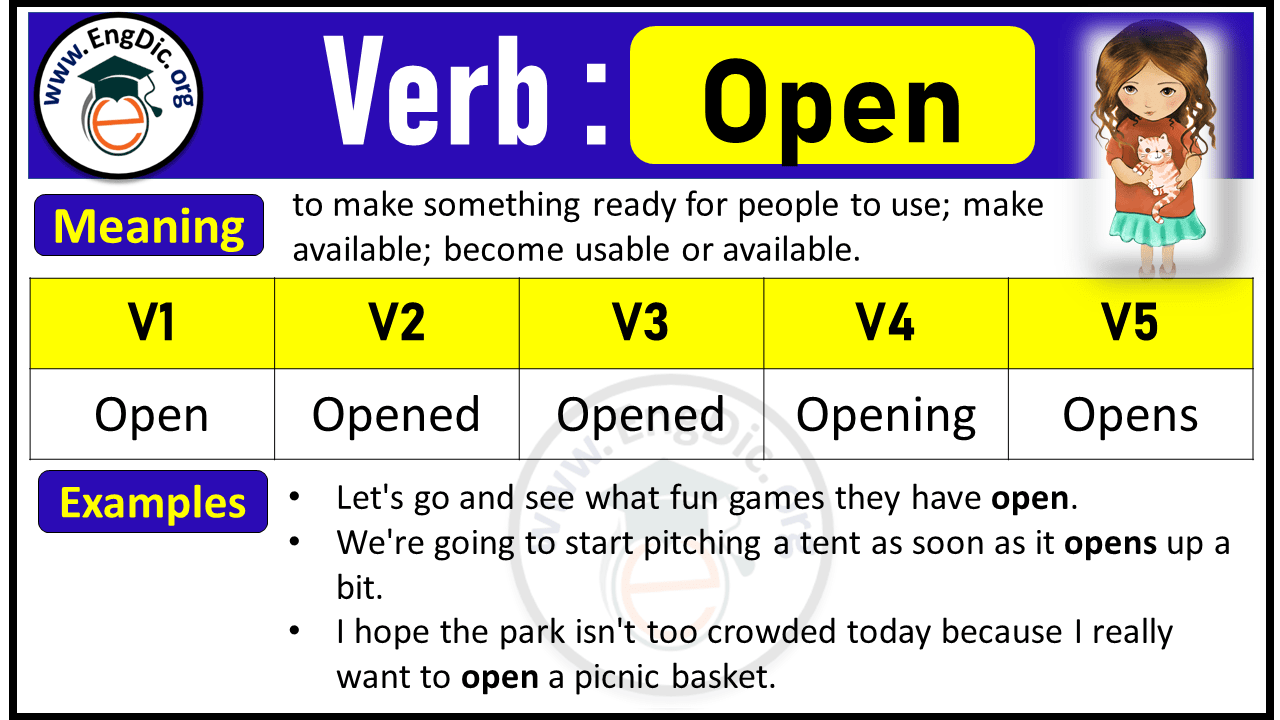
Open past participle Archives EngDic
Conjugation is the creation of derived forms of a verb from its principal parts by inflection (alteration of form according to rules of grammar). For instance, the verb "break" can be conjugated to form the words break, breaks, broke, broken and breaking. The term conjugation is applied only to the inflection of verbs, and not of other parts of speech (inflection of nouns and adjectives is.

Open Past Simple, Simple Past Tense of Open, Past Participle, V1 V2 V3
past simple and past participle of open open verb uk / ˈəʊ.p ə n / us / ˈoʊ.p ə n / open verb (BEGIN) B2 [ I or T ] to ( cause to) begin: I would like to open my talk by giving a brief background to the subject. I'm going to open an account with another bank. The Olympic Games open tomorrow. A new radio station is due to open (up) next month.
Past Simple to Present Simple Open the box
To Open Infinitive: to open Gerund: opening Past participle: opened Simple past: opened Irregular forms Auxilliary verb Spelling change Use contractions Indicative Present I open you open he/she/it opens we open they open you open Preterite I opened you opened he/she/it opened we opened they opened you opened Future I will open you will open
Past simple (+, , ?) Open the box
Level: beginner With most verbs, the past tense is formed by adding -ed: called liked wanted worked But there are a lot of irregular past tense forms in English. Here are the most common irregular verbs in English, with their past tense forms: We use the past tense to talk about: something that happened once in the past: I met my wife in 1983.
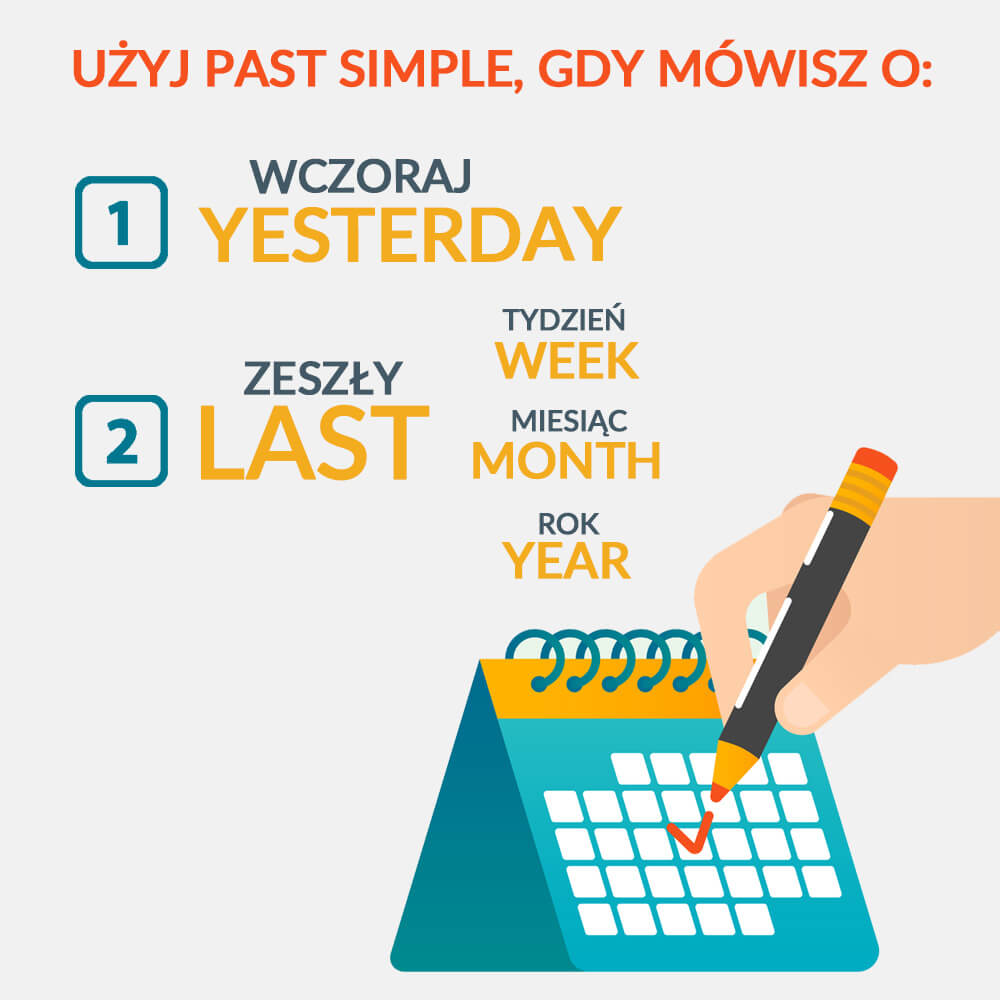
Past Simple w 15 minut
Open Past Simple, Simple Past Tense of Open, Past Participle, V1 V2 V3 Form Of Open When learning English you need to know the meaning of certain words first, and then sort the words appropriately according to grammatical rules.
Past Simple Open the box
The Past Simple (Simple Past) with Other Verbs. We make the past simple just like the present simple except we use 'did' instead of 'do / does'. It's really easy because 'did' doesn't change, even with 'he / she / it'. The positive: We usually make the positive by adding '-ed' to the infinitive. For example, 'play' becomes 'played'.

Past Simple v Past Continuous Virtually Fluent
Open in Past Simple (Indefinite) Tense. Singular. Plural. I opened. We opened. You opened. You opened. He/She/It opened. They opened.
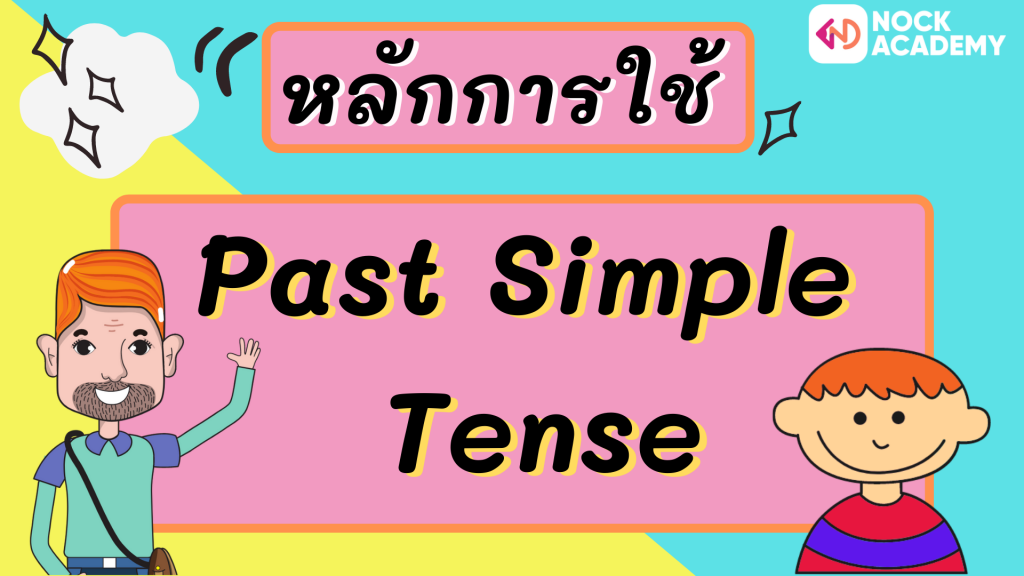
หลักการใช้ Past Simple Tense NockAcademy
Simple Past Tense He/She/It opened. I opened. You/We/They opened. Past Continuous Tense He/She/It was opening. I was opening. You/We/They were opening. Past Perfect Tense He/She/It had opened. I had opened. You/We/They had opened. Past Perfect Continuous Tense He/She/It had been opening. I had been opening. You/We/They had been opening.

Past Simple Presentation general gra… English ESL powerpoints
Past simple - Form. Download full-size image from Pinterest Spelling of regular verbs. Download full-size image from Pinterest . Past simple - Use Completed actions in the past. We use the past simple to talk about actions or events that happened in the past. We know or we say when the events happened. I saw Jim yesterday. We didn't go.

Past Simple
Future Simple. I will open. you will open. he, she will open. we will open. you will open. they will open.